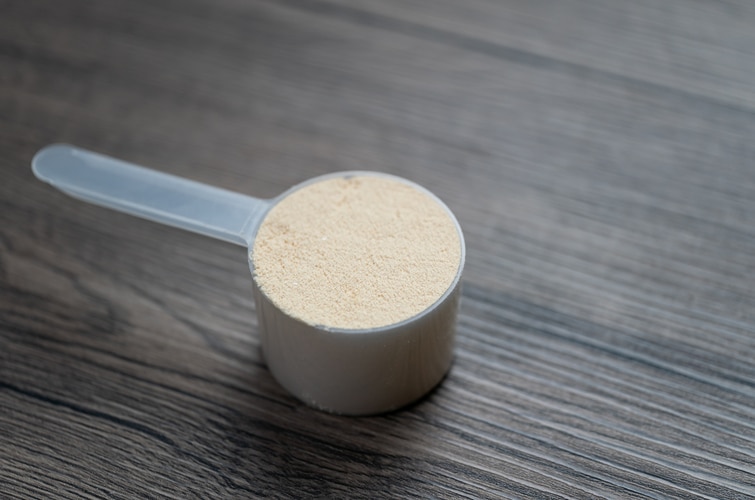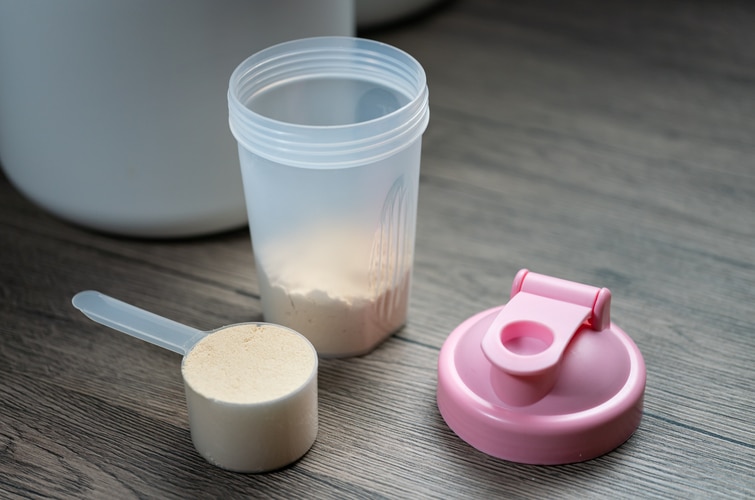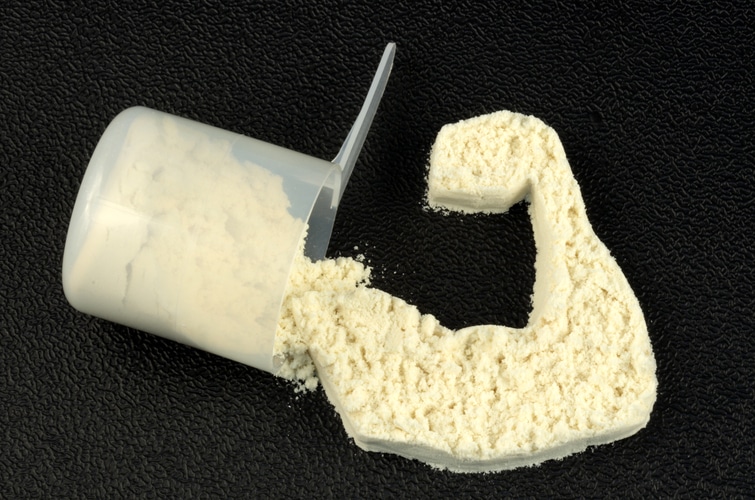When it comes to protein powder, there are a lot of questions. How long does it last? What kind should I buy? Do I need to refrigerate it? Protein powder is a popular supplement for bodybuilders and athletes, but it can be confusing to understand how to properly store and use it.
In this blog post, we will answer all of your protein powder questions so that you can get the most out of your supplement. Read on to learn everything you need to know about protein powder.
Contents
What Is Protein Powder?
Protein powder is a popular dietary supplement that is often used by athletes and bodybuilders to help promote muscle growth. Protein powder is typically made from whey protein, which is a by-product of the cheese-making process. Whey protein is considered a complete protein, meaning it contains all of the essential amino acids needed for muscle growth.
Protein powders can last for up to two years when stored properly. However, it's important to note that the quality of the protein powder may degrade over time, so it's best to use it within six months of opening. Protein powders can be mixed with water or milk to create a shake, or they can be added to smoothies, yogurt, or oatmeal.

How Long Does Protein Powder Last?
The answer to this question depends on a few factors, including the type of protein powder you have, how you store it, and how often you use it. Protein powders generally have a shelf life of about two years. However, if you have a Whey-based powder, it will only last for six to twelve months. After that, the quality of the protein will start to degrade.
If you want your protein powder to last as long as possible, it's important to store it in a cool, dry place. Heat and moisture can cause the proteins in the powder to break down, so avoid storing them in places like the kitchen or bathroom.
Finally, how often you use your protein powder will also affect how long it lasts. If you're using it daily, you'll likely go through it faster than someone who only uses it occasionally. Now you know how long protein powder lasts and what factors affect its shelf life. Just remember to store it properly and use it regularly for the best results.
Does protein powder expire? This question is also an important thing to consider. You might wonder this when you see a sell-by date on the container. To fully understand the question, you need to know what sell-by dates are telling you.
Consuming protein powder shortly will generally still be safe after its expiration date if there are no signs of it going bad. These signs can include a rancid or sour smell, a bitter taste, changes in color, or clumping. If you notice any of these signs, throw out your tub and buy a new one.
What Are The Benefits Of Protein Powder?
Protein powder is a popular dietary supplement that is often used by athletes and bodybuilders to help promote muscle growth. However, protein powder can also be beneficial for those who are not looking to bulk up, but rather want to maintain their muscle mass or lose weight. Protein powder can help with both of these goals by providing a concentrated source of protein that can help to preserve muscle mass and promote satiety.
There are a variety of different types of protein powders on the market, but they all generally provide the same basic benefits. Protein powder is typically made from whey, casein, soy, or egg white proteins, and is often fortified with vitamins and minerals. One of the main benefits of protein powder is that it is a very efficient way to consume protein. A single scoop of protein powder can provide upwards of 25 grams of protein, which is more than most people would get from a typical diet.
Another benefit of protein powder is that it is very easy to digest. This is because protein powders are typically highly bioavailable, meaning that they are easily absorbed by the body. This makes them an ideal choice for those who have trouble digesting other sources of protein such as meat or dairy products.
Finally, protein powders can be very helpful for those who are trying to lose weight or manage their weight because they can help promote satiety. When you feel full after consuming a meal or snack, you are less likely to overeat.
What Are The Side Effects Of Protein Powder?
There are a few potential side effects of protein powder. Here are some of them:
-
Digestive issues: Protein powder is typically very high in protein and low in fiber. This can sometimes cause digestive issues like constipation, diarrhea, bloating, and gas.
-
Kidney problems: Protein powder is also high in nitrogen. When the body breaks down nitrogen, it produces waste products that the kidneys need to filter out. If you have kidney problems, protein powder can make them worse.
-
Allergies: Some people are allergic to whey or soy, two of the most common types of protein powder. Symptoms of an allergy include hives, swelling, difficulty breathing, and anaphylaxis.
-
Liver damage: Protein powder can also put a strain on the liver. In one case study, a man developed liver failure after using protein powder for several years.
-
Cancer: Some studies have found that high protein intake is associated with an increased risk of cancer, but it's not clear if protein powder itself increases the risk.
In general, protein powder is safe for most people. However, if you have any health conditions, it's important to speak to your doctor before you start using them.
How To Take Protein Powder?

Assuming you're talking about whey protein powder, it's pretty simple to take. Just mix it with water or milk and drink it down. You can use a shaker cup or just stir it with a spoon.
If you want to get the most out of your protein powder, make sure you're using it in conjunction with a healthy diet and workout routine. Protein powder is a great way to ensure you're getting enough protein, but it's not going to work miracles on its own.
In general, you should take protein powder either before or after your workout. If you take it before, it can help give you a boost of energy. If you take it after, it can help your muscles recover.
There's no one-size-fits-all answer to how much protein powder you should take. It depends on factors like your weight, muscle mass, and activity level. A good rule of thumb is to take 1-2 scoops per day, or as directed by your doctor or fitness trainer.
How To Store Protein Powder
With so many different types of protein powders on the market, it can be hard to know how to store them properly. Here are some tips on how to store protein powder:
Check the expiration date
Protein powder can last for a long time, but it will eventually expire. Check the expiration date on the package and make sure to use it before that date.
Store in a cool, dry place
Protein powder should be stored in a cool, dry place away from sunlight. A pantry or cupboard is a good option.
Keep the lid tightly closed
Once you open a container of protein powder, make sure to keep the lid tightly closed when you're not using it. This will help keep the powder fresh for longer.
Consider using a food storage container
If you want to be extra careful with your protein powder, consider transferring it to a food storage container with a tight-fitting lid. This will help keep out moisture and pests.
Use within a few months
Protein powder is best used within a few months of opening the container. After that, it may start to lose its potency.

Conclusion
Protein powder is a great way to get an extra boost of protein into your diet, but it's important to know how long it will last. Depending on the type of protein powder, it can last anywhere from two to four years. However, it's always best to check whether the protein powder expires by checking its expiration date on the label to be sure.
If you're not sure how to store your protein powder, make sure to keep it in a cool, dry place away from direct sunlight. With proper storage and care, your protein powder should last a long time.






